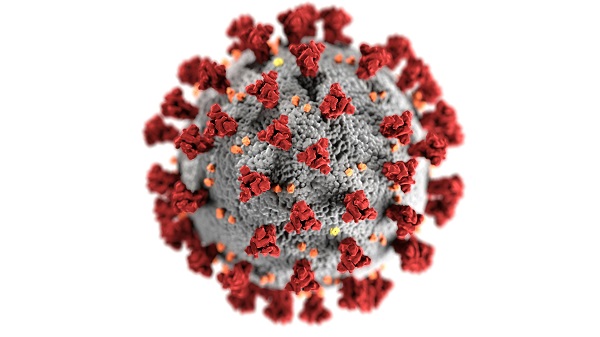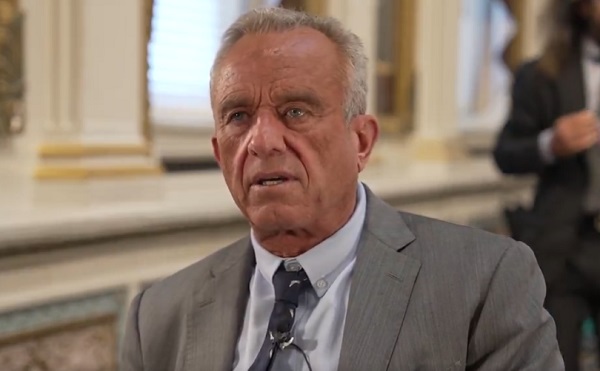Censorship Industrial Complex
Legacy Media Outlets Buried Research Showing DEI Makes People More Likely To Agree With Hitler

 From the Daily Caller News Foundation
From the Daily Caller News Foundation
Two legacy media outlets refused to publish stories covering a study that said diversity, equity and inclusion (DEI) education “increased hostility” and made people more likely to agree with the modified statements of Adolf Hitler.
The Network Contagion Research Institute (NCRI) claimed The New York Times and Bloomberg informed them that they would not publish stories concerning their study, citing editorial concerns, according to communications obtained by the National Review. The study, titled “Instructing Animosity: How DEI Pedagogy Produces the Hostile Attribution Bias,” found that people who read material espousing left-wing ideas on race and identity often amplified “perceptions of prejudicial hostility where none was present, and punitive responses to the imaginary prejudice.”
“Unfortunately, both publications jumped on the story enthusiastically only for it to be inexplicably pulled at the highest editorial levels,” a NCRI researcher told National Review. “This has never happened to the NCRI in its 5-year history.”
A New York Times reporter told the NCRI that they would reconsider publishing the article on the study if the paper went under peer review, according to National Review.
“The piece was reported and ready for publication, but at the eleventh hour, the New York Times insisted the research undergo peer review after discussions with editorial staff — an unprecedented demand for our work,” a NCRI researcher told National Review. “The journalist involved had previously covered far more sensitive NCRI findings, such as our QAnon and January 6th studies, without any such request.”
The New York Times denied having an article ready to publish in a statement to the Daily Caller News Foundation.
“Our journalists are always considering potential topics for news coverage, evaluating them for newsworthiness, and often choose not to pursue further reporting for a variety of reasons,” a Times spokesperson told the DCNF. “Speculative claims from outside parties about The Times’s editorial process are just that. It’s not true that The Times had prepared a story ‘ready for publication’ on this topic.”
The two Bloomberg reporters had a piece ready to publish, but Nabila Ahmed, the team leader for Global Equality at Bloomberg News, informed the NCRI that they wouldn’t publish the article, saying it was an “editorial decision.” Ahmed’s responsibilities are to “elevate issues of race, gender, diversity and fairness within companies, governments and societies that Bloomberg News covers,” according to her LinkedIn.
The reporters previously communicated to the NCRI that the research would create “an important story” and they would’ve been “eager” to publish on it, according to National Review.
In the experiment, researchers took 850 participants and gave one group a neutral essay on the caste system in India, and gave the other caste-sensitivity-training material from Equality Labs, a left-wing human rights organization, according to the study.
When participants who read the DEI-inspired material viewed modified past statements from Hitler which replaced the word “Jew” with “Brahmin,” the upper class in the caste system, they were more likely to agree that Brahmins were “‘parasites’ (+35.4%), ‘viruses’ (+33.8%), and ‘the devil personified’ (+27.1%),” according to the study.
The DEI-charged material seemed to “engender a hostile attribution bias and heighten racial suspicion, prejudicial attitudes, authoritarian policing, and support for punitive behaviors in the absence of evidence for a transgression deserving punishment,” according to the study.
The NCRI and Bloomberg did not immediately respond to the DCNF’s request for comment.
Censorship Industrial Complex
Welcome to Britain, Where Critical WhatsApp Messages Are a Police Matter

By
“It was just unfathomable to me that things had escalated to this degree,”
“We’d never used abusive or threatening language, even in private.”
|
You’d think that in Britain, the worst thing that could happen to you after sending a few critical WhatsApp messages would be a passive-aggressive reply or, at most, a snooty whisper campaign. What you probably wouldn’t expect is to have six police officers show up on your doorstep like they’re hunting down a cartel. But that’s precisely what happened to Maxie Allen and Rosalind Levine — two parents whose great offense was asking some mildly inconvenient questions about how their daughter’s school planned to replace its retiring principal.
This is not an episode of Black Mirror. This is Borehamwood, Hertfordshire, 2025. And the parents in question—Maxie Allen, a Times Radio producer, and Rosalind Levine, 46, a mother of two—had the gall to inquire, via WhatsApp no less, whether Cowley Hill Primary School was being entirely above board in appointing a new principal.
What happened next should make everyone in Britain pause and consider just how overreaching their government has become. Because in the time it takes to send a meme about the school’s bake sale, you too could be staring down the barrel of a “malicious communications” charge.
The trouble started in May, shortly after the school’s principal retired. Instead of the usual round of polite emails, clumsy PowerPoints, and dreary Q&A sessions, there was… silence. Maxie Allen, who had once served as a school governor—so presumably knows his way around a budget meeting—asked the unthinkable: when was the recruitment process going to be opened up?
A fair question, right? Not in Borehamwood, apparently. The school responded not with answers, but with a sort of preemptive nuclear strike.
Jackie Spriggs, the chair of governors, issued a public warning about “inflammatory and defamatory” social media posts and hinted at disciplinary action for those who dared to cause “disharmony.” One imagines this word being uttered in the tone of a Bond villain stroking a white cat.
|
 |
Parents Allen and Levine were questioned by police over their WhatsApp messages. |
|
For the crime of “casting aspersions,” Allen and Levine were promptly banned from the school premises. That meant no parents’ evening, no Christmas concert, no chance to speak face-to-face about the specific needs of their daughter Sascha, who—just to add to the bleakness of it all—has epilepsy and is registered disabled.
So what do you do when the school shuts its doors in your face? You send emails. Lots of them. You try to get answers. And if that fails, you might—just might—vent a little on WhatsApp.
But apparently, that was enough to earn the label of harassers. Not in the figurative, overly sensitive, “Karen’s upset again” sense. No, this was the actual, legal, possibly-prison kind of harassment.
Then came January 29. Rosalind was at home sorting toys for charity—presumably a heinous act in today’s climate—when she opened the door to what can only be described as a low-budget reboot of Line of Duty. Six officers. Two cars. A van. All to arrest two middle-aged parents whose biggest vice appears to be stubborn curiosity.
“I saw six police officers standing there,” she said. “My first thought was that Sascha was dead.”
Instead, it was the prelude to an 11-hour ordeal in a police cell. Eleven hours. That’s enough time to commit actual crimes, be tried, be sentenced, and still get home in time for MasterChef.
Allen called the experience “dystopian,” and, for once, the word isn’t hyperbole. “It was just unfathomable to me that things had escalated to this degree,” he said. “We’d never used abusive or threatening language, even in private.”
Worse still, they were never even told which communications were being investigated. It’s like being detained by police for “vibes.”
One of the many delightful ironies here is that the school accused them of causing a “nuisance on school property,” despite the fact that neither of them had set foot on said property in six months.
Now, in the school’s defense—such as it is—they claim they went to the police because the sheer volume of correspondence and social media posts had become “upsetting.” Which raises an important question: when did being “upsetting” become a police matter?
What we’re witnessing is not a breakdown in communication, but a full-blown bureaucratic tantrum. Instead of engaging with concerned parents, Cowley Hill’s leadership took the nuclear option: drag them out in cuffs and let the police deal with it.
Hertfordshire Constabulary, apparently mistaking Borehamwood for Basra, decided this was a perfectly normal use of resources. “The number of officers was necessary,” said a spokesman, “to secure electronic devices and care for children at the address.”
Right. Nothing says “childcare” like watching your mom get led away in handcuffs while your toddler hides in the corner, traumatized.
After five weeks—five weeks of real police time, in a country where burglaries are basically a form of inheritance transfer—the whole thing was quietly dropped. Insufficient evidence. No charges. Not even a slap on the wrist.
So here we are. A story about a couple who dared to question how a public school was run, and ended up locked in a cell, banned from the school play, and smeared with criminal accusations for trying to advocate for their disabled child.
This is Britain in 2025. A place where public institutions behave like paranoid cults and the police are deployed like private security firms for anyone with a bruised ego. All while the rest of the population is left wondering how many other WhatsApp groups are one message away from a dawn raid.
Because if this is what happens when you ask a few inconvenient questions, what’s next? Fingerprinting people for liking the wrong Facebook post? Tactical units sent in for sarcastic TripAdvisor reviews?
It’s a warning. Ask the wrong question, speak out of turn, and you too may get a visit from half the local police force.
|
|
|
|
Reclaim The Net values your free speech and privacy. Each issue we publish is a commitment to defend these critical rights, providing insights and actionable information to protect and promote liberty in the digital age.
Despite our wide readership, less than 0.2% of our readers contribute financially. With your support, we can do more than just continue; we can amplify voices that are often suppressed and spread the word about the urgent issues of censorship and surveillance. Consider making a modest donation — just $5, or whatever amount you can afford. Your contribution will empower us to reach more people, educate them about these pressing issues, and engage them in our collective cause. Thank you for considering a contribution. Each donation not only supports our operations but also strengthens our efforts to challenge injustices and advocate for those who cannot speak out. Thank you.
|
Censorship Industrial Complex
They knew it was a lab leak all along

 MxM News
MxM News
Newly Revealed Documents Confirm Lab Leak Coverup
Quick Hit:
The global debate over COVID-19’s origins has taken a dramatic turn after newly uncovered reports indicate that intelligence agencies in Germany had determined with near certainty that the virus originated in a Chinese lab as early as 2020. Despite this revelation, German Chancellor Angela Merkel reportedly chose to suppress the findings, aligning with a broader pattern of obfuscation by Western governments and media outlets.
Key Details:
-
German newspapers Zeit and Süddeutsche Zeitung reported that Germany’s intelligence agency, the BND, concluded in early 2020 with 80% to 95% certainty that COVID-19 leaked from a lab in Wuhan, China.
-
The intelligence was based on a combination of public-domain research and classified investigations under the code name “Saaremaa.”
-
Merkel’s administration allegedly buried the findings, with her successor Olaf Scholz continuing the suppression, ensuring the information remained hidden from the public until now.
Diving Deeper:
Journalist Alex Berenson detailed the shocking revelations in his Substack op-ed, underscoring how “the American media is doing its best to ignore the biggest news this week.” Berenson criticized legacy media outlets for fixating on the five-year anniversary of COVID-19 while sidestepping the implications of newly surfaced intelligence.
According to Berenson, German intelligence reached its high-confidence conclusion after analyzing public materials and conducting covert operations. “The material… indicated that there had been some risky research methods used there [at the Wuhan Institute of Virology], compounded by breaches of laboratory safety rules… [and] so-called gain-of-function experiments, in which viruses occurring in nature are manipulated [to become more dangerous or transmissible],” he wrote.
Rather than alert the world to the evidence, Merkel chose to suppress it. Berenson sarcastically noted, “Who immediately told the world of the findings and demanded a full investigation into what China’s totalitarian government knew and when it knew it? Nah, I’m funning you. Angela stuffed that report in a drawer and got back to doing what she did best, destroying Germany’s industrial base to make Greta Thunberg happy.”
The refusal to disclose this intelligence aligns with a broader pattern of deception from both governmental and media institutions, which spent years dismissing the lab leak hypothesis as a conspiracy theory. Berenson noted that during early 2020, “Dr. Anthony S. Fauci and Peter Daszak… were gently steering their fellow scientists towards a conclusion that COVID’s origins were 100 billion zillion percent natural.”
Even after Merkel left office in 2021, Scholz’s government continued to keep the intelligence under wraps. “The BND told her replacement, Olaf Scholz, ‘without the results finding their way to the public’ — as the British newspaper The Telegraph delicately put it,” Berenson wrote. Now that the findings have emerged, the German government has not denied the reports, leaving Berenson to conclude, “There’s about a 100 to 100 percent chance they’re true.”
The final takeaway? “We all sorta knew this already, right? Both the lab leak and the coverup,” Berenson observed. “But there’s knowing and there’s knowing. And it looks like the same American news outlets that spent 2020 and 2021 lying (or, at best, being hopelessly credulous) about China and COVID still aren’t ready to come clean.”
As new evidence continues to surface, the question remains: Will legacy media and world leaders finally acknowledge the lab leak theory as fact, or will they continue to deflect responsibility and protect their preferred narratives?
-

 Health2 days ago
Health2 days agoRFK Jr. says ‘everything is going to change’ with CDC vaccine policy in Michael Knowles interview
-

 Business2 days ago
Business2 days agoLabor Department cancels “America Last” spending spree spanning five continents
-

 Economy1 day ago
Economy1 day agoClearing the Path: Why Canada Needs Energy Corridors to Compete
-

 2025 Federal Election2 days ago
2025 Federal Election2 days agoNext federal government should recognize Alberta’s important role in the federation
-

 Addictions2 days ago
Addictions2 days agoThere’s No Such Thing as a “Safer Supply” of Drugs
-

 Business1 day ago
Business1 day agoTariff-driven increase of U.S. manufacturing investment would face dearth of workers
-

 Education1 day ago
Education1 day agoOur Kids Are Struggling To Read. Phonics Is The Easy Fix
-

 2025 Federal Election11 hours ago
2025 Federal Election11 hours ago2025 Federal Election Interference from China! Carney Pressed to Remove Liberal MP Over CCP Bounty Remark










